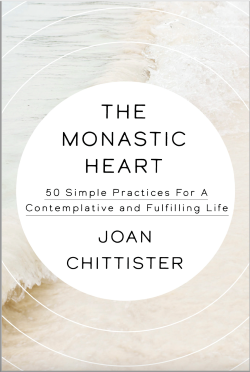The right words don’t matter
Contemplation is not the practice of saying prayers. It is the growing, overwhelming consciousness of God within and around us, before us and beyond us. It is God embedded in our souls and at the helms of our hearts. It is the awareness of God that is, as Paul says, “praying without ceasing.”
consciousness of God within and around us, before us and beyond us. It is God embedded in our souls and at the helms of our hearts. It is the awareness of God that is, as Paul says, “praying without ceasing.”
What we have come to know about God, we now begin to live in our daily lives: that Black lives matter, for instance; that women are equal to men and as much bearers of the Spirit as men will ever be; that everything we do as individuals, as countries, must reflect the will of God for all of creation. Suddenly we realize that God is everywhere, is alive in our lives, is the light on the road that beckons us on.
Every major religious tradition calls us beyond forms of religion to faith in God, to depth of soul. Then, when the soul is as broad as the sky, we are ready to break down the false boundaries between peoples. We are spiritually mature enough to center ourselves on the fulfillment of the God life within us rather than simply make the things of God our gods.
The deification of things is everywhere in religion. Through this a false orthodoxy—meaning keeping things the way they’ve “always been”—becomes the goal and the will of God for creation becomes less of the essence of our spirituality and more like a distraction on the way.
Islam puts it this way: Once upon a time a Sufi made the annual pilgrimage to Mecca. It was a long walk for him, and the sun was high. He had come miles without stopping. Finally, in sight of the great mosque at Mecca, sure of the goal now, the old man lay down in the road to rest.
Suddenly one of the other pilgrims shook him awake, rough and harsh in the doing of it. “Wake up,” he commanded. “You blaspheme, Sufi! You lie in such a way that your feet are pointed toward the holy mosque! What kind of Sufi are you?”
The old Sufi opened one eye, smiled, and said, “I thank you, holy sir. Now would you be kind enough to turn my feet in some direction where they are not pointed toward God?”
This is the difference between prayer and contemplation. Prayer says the words. Contemplation understands that in the end the right words don’t matter. In contemplation we discover that there is a difference between orthodoxy and the consciousness of God in life.
So often, rule keepers remember to keep the rules because rule keeping is so safe. All I have to do to be holy is to check off the practice, while I forget, if I ever knew, its purpose. Contemplation, on the other hand, goes beyond the spine or structures of a religious community, beyond its customs books or rule books or historical development to its innards, to its mystical end, to the energy that created it and drives it. The contemplative life is more than prayers or rituals or sermons. It is all of those things but more. It is about the experience of God. It is the fullness of the Tradition come to life again in us.
—from The Monastic Heart: 50 Simple Practices for a Contemplative and Fulfilling Life (Convergent Books) by Joan Chittister
